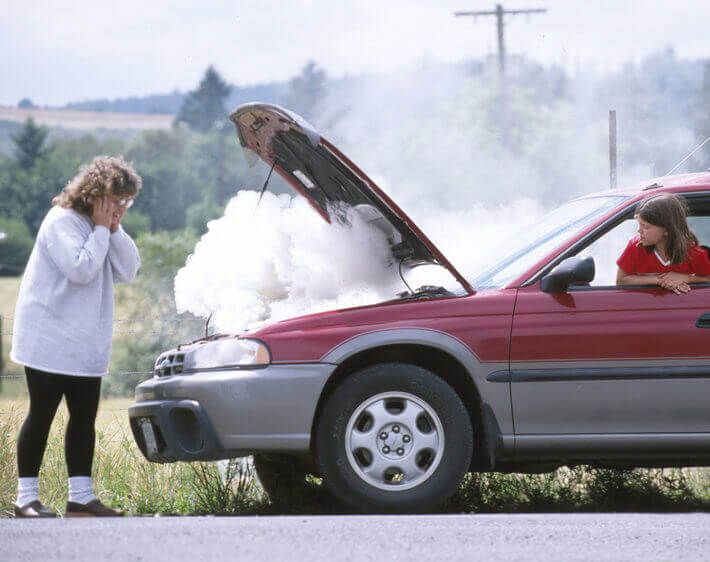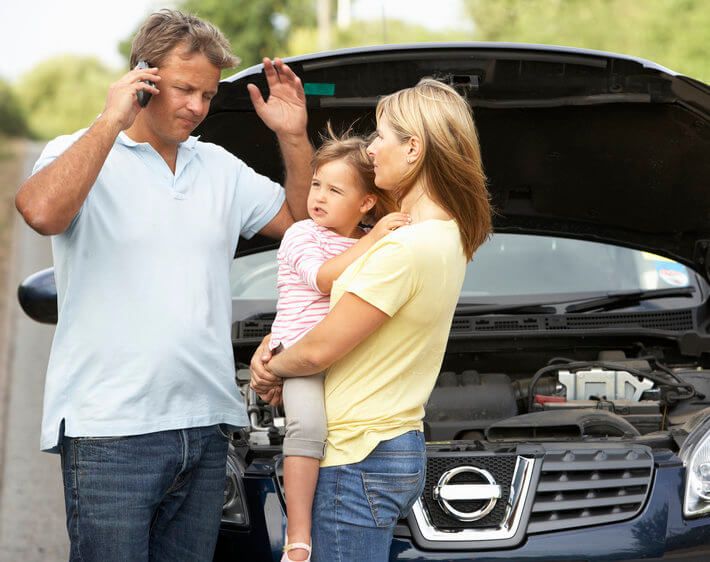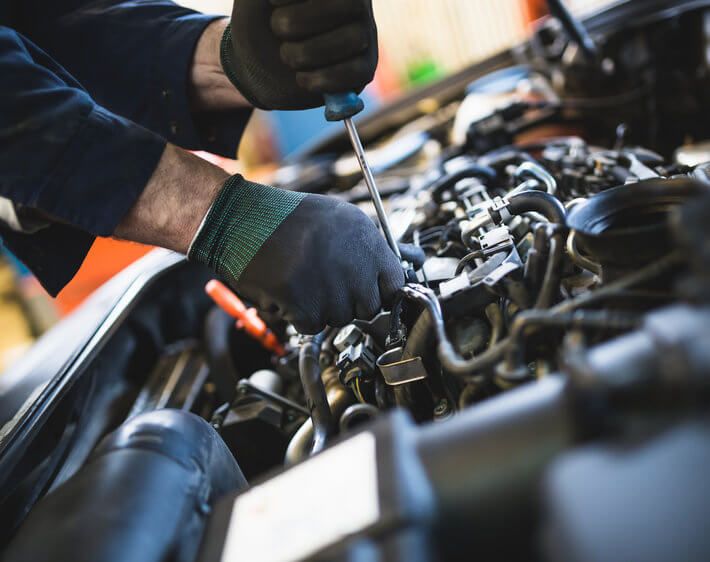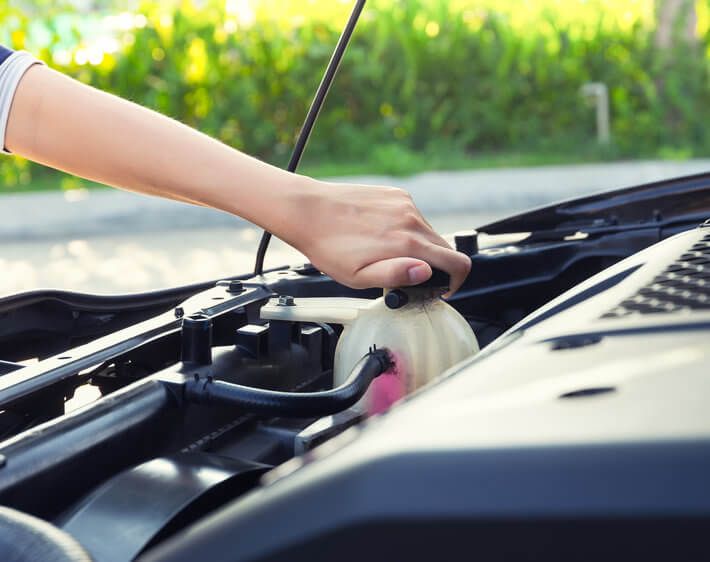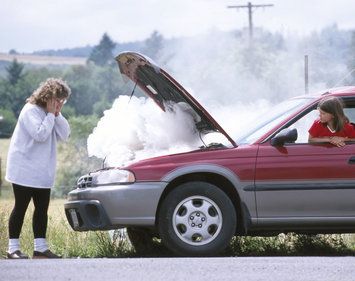
What follows are six common reasons for an overheated car.
1. Cooling System Failure
An overheated engine is very often caused by cooling system failure.
The cooling system draws heat away from the engine — where the combustion chamber can reach 4,500 degrees Fahrenheit — and pushes it to the outside. If something is wrong with the cooling system, such as a leak, then your car can overheat.
"Neglecting your cooling system can result in serious damage and even complete engine failure, which would put a sudden end to your summer road trip," says Rich White, executive director of the Car Care Council. “If the cooling system doesn’t receive regular maintenance according to the OEM maintenance schedule, it’s not a question of whether it will fail, but rather when it will fail."
To help prevent cooling system failure, turn to knowledgeable auto technicians at Tires Plus for a cooling system inspection and OEM scheduled maintenance service.
2. Radiator Problems
Simply put, the radiator is an essential part of the cooling system, pulling heat away from your car’s engine. Therefore, if something goes wrong with the radiator, such as a build-up of particles and debris, your engine could easily overheat.
Exchanging the vehicle’s coolant according to the OEM maintenance schedule can help prevent your engine from overheating — and prevent you from being stranded on the side of the road.
"Motorists can also do a visual inspection of hoses, belts, and the radiator to help identify cooling system problems before they escalate," suggests the Car Care Council.
3. Faulty Belts or Hoses
The cause of many overheated engines can be traced back to belts or hoses that aren’t working properly.
A vehicle’s belts and hoses are essential to the cooling, air conditioning, and charging systems of the engine.
Belts transmit power from the front of the engine to accessories that need to be driven, such as the air conditioning, charging system, and fans, explains the Council. Meanwhile, radiator and heater hoses carry coolant to and from the engine, radiator, and heater core.
Performing regular checkups of belts, hoses, and fluids can help ensure your car remains properly cooled and healthy for many miles down the road. That's one reason we offer Courtesy Checks at Tires Plus. A qualified technician will look at your car’s belts and hoses — plus a whole lot more.
4. Low Oil
Motor oil helps to control the temperature of your car’s engine by minimizing friction. So, if your car is low on oil, possibly due to an oil leak, it can lead to engine overheating.
Oil lubricates internal engine components and makes sure they move smoothly. Lack of lubrication causes friction, which will generate excessive heat, and potentially cause the engine to fail.
The technicians at Tires Plus are equipped to detect, explain, and resolve your car’s oil problems. With low oil, the fix could be as simple as an oil change.
5. Bad Thermostat
Just like any part of your car, the thermostat can fail. And if the thermostat fails, that can spell trouble for the engine, as the thermostat regulates the coolant and helps keep the engine from overheating.
In addition to overheating, signs of a bad thermostat can include irregular temperature fluctuations and/or coolant leaks under your vehicle.
A radiator and cooling system checkup at Tires Plus can help diagnose thermostat problems and prevent thermostat issues before they happen.
6. Failing Water Pump
The water pump essentially keeps coolant moving through the cooling system.
The coolant absorbs heat from the engine and is circulated by the water pump through hoses to the radiator. Once the radiator extracts the heat from the coolant, the coolant circulates back to the engine and the cycle starts again. Therefore, problems with a water pump, such as a leak, could cause an engine to overheat.
Other common signs of a failing water pump include coolant leaks under the front of the car and steam coming from the radiator.
Our qualified technicians will inspect your water pump as part of a cooling system inspection, to figure out if your water pump is contributing to an overheating engine.
Taking care of your car's cooling system — and all the pieces and parts that go along with it — is one of the best ways to prevent your car from overheating. Visit your nearest Tires Plus for a cooling system inspection. If needed, a coolant fluid exchange can be performed following the OEM maintenance schedule. Our technicians are happy to inspect your vehicle’s cooling system and explain why your car is overheating and what they can do to repair it.
